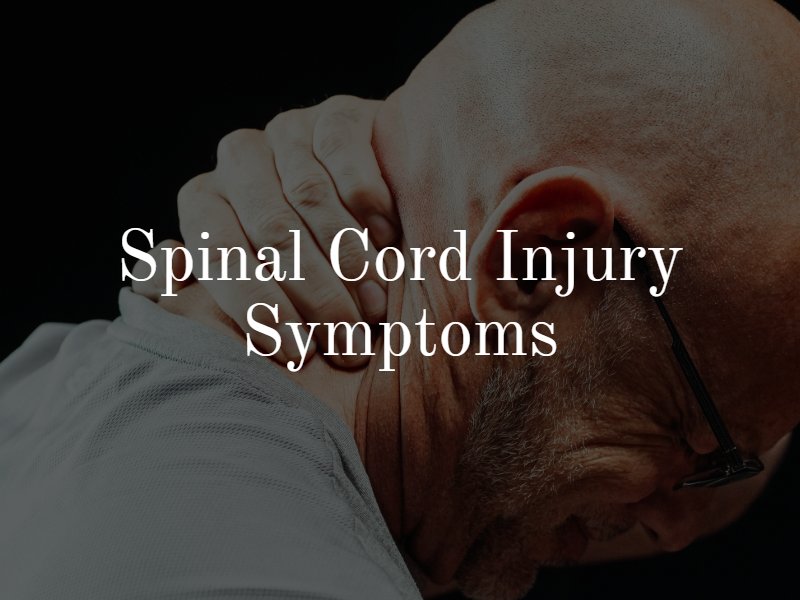Spinal Cord Injury Symptoms
Catastrophic Injury,Personal Injury,Spinal Cord Injury - November 15, 2021 by Horwitz, Horwitz & Associates
Spinal cord injuries can be devastating and result in long-lasting disabilities for victims throughout Illinois. Unfortunately, these injuries occur in a wide variety of ways, and no two spinal cord injuries are exactly alike. Here, we want to discuss the most common spinal cord injury symptoms victims in these situations have to endure. It is important to note that not everyone will experience all of these symptoms, and there may be other symptoms not on this list that you need to be aware of and speak to your doctor about.
Spinal Cord Injury Symptoms Depend on the Level of the Injury
It is difficult to properly discuss spinal cord injury symptoms without acknowledging that there are various levels of spinal cord injuries that can occur. If we examine information available from the National Spinal Cord Injury Statistical Center (NSCISC), we see that these injuries are often summarized as paraplegia or quadriplegia, but there are other levels of injuries and paralysis that victims can sustain as a result of an accident.
In some cases, individuals will be completely paralyzed as a result of a spinal cord injury. This will result in a loss of all movement and most bodily functions below the injury site. In other instances, individuals may only experience partial paralysis or even no paralysis at all but still suffer some sort of internal organ issues.
- Quadriplegia refers to a person who experiences paralysis from the neck down.
- Paraplegia refers to a person experiencing paralysis from the waist down.
- Other types of spinal cord trauma can leave a person with pain and numbness but no paralysis.
We can also examine spinal cord injuries and symptoms by looking at whether or not an injury is considered complete or incomplete. When a person sustains a “complete” spinal cord injury, this means that they will be completely paralyzed below the site of the injury. If a person sustains an “incomplete” spinal cord injury, this means that they will likely retain various types of sensory and motor functioning below the affected area.
We typically find that spinal cord injury symptom descriptions are generalized, but we have to examine every case independently from others. The overall severity of symptoms one spinal cord injury victim experiences will likely be different from another person with what looks like the exact same type of injury.
Short- and Long-Term Spinal Cord Injury Symptoms
Information available from the Mayo Clinic shows us that spinal cord injuries can affect a person for their entire life, including their physical abilities as well as their emotional and psychological well-being.
When we examine the symptoms of a spinal cord injury, it is important to differentiate between what a person experiences right after the injury occurs from the long-term symptoms a person will likely experience as they work to recover and for the remainder of their lives.
The most common immediate emergency symptoms of spinal cord injury include:
- Significant pain in the area where the injury occurred
- Tingling or numbness in the extremities
- Loss of bowel or bladder control
- Impaired breathing
- Trouble walking
- Overall issues with balance and weakness
In the days, weeks, in months following a spinal cord injury, a person may experience a wide range of other symptoms, some of which may be temporary, but others that may be permanent, including:
- Complete paralysis below the site of the injury
- Permanent loss of bowel or bladder control
- Loss of sensation, including the loss of touch senses
- Trouble breathing, clearing the lungs, or coughing
- Pain or tingling in the area around the injury or along the nerves
- Permanent loss of sexual function
- Difficulty speaking
Any person who sustains spinal cord injury needs to work with a skilled personal injury lawyer in Chicago who can help them recover the compensation they need. This includes coverage of medical bills, lost wages, and pain and suffering damages.



